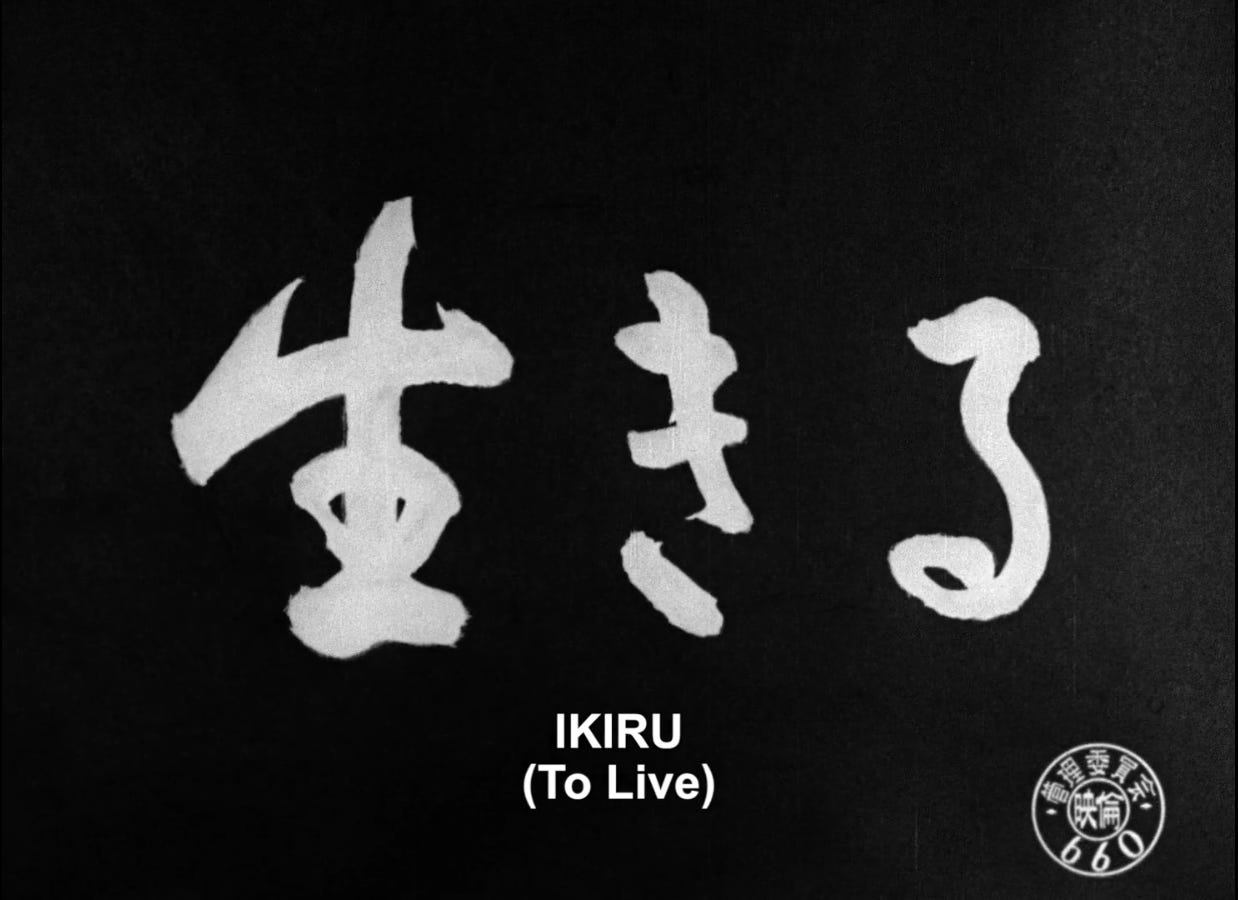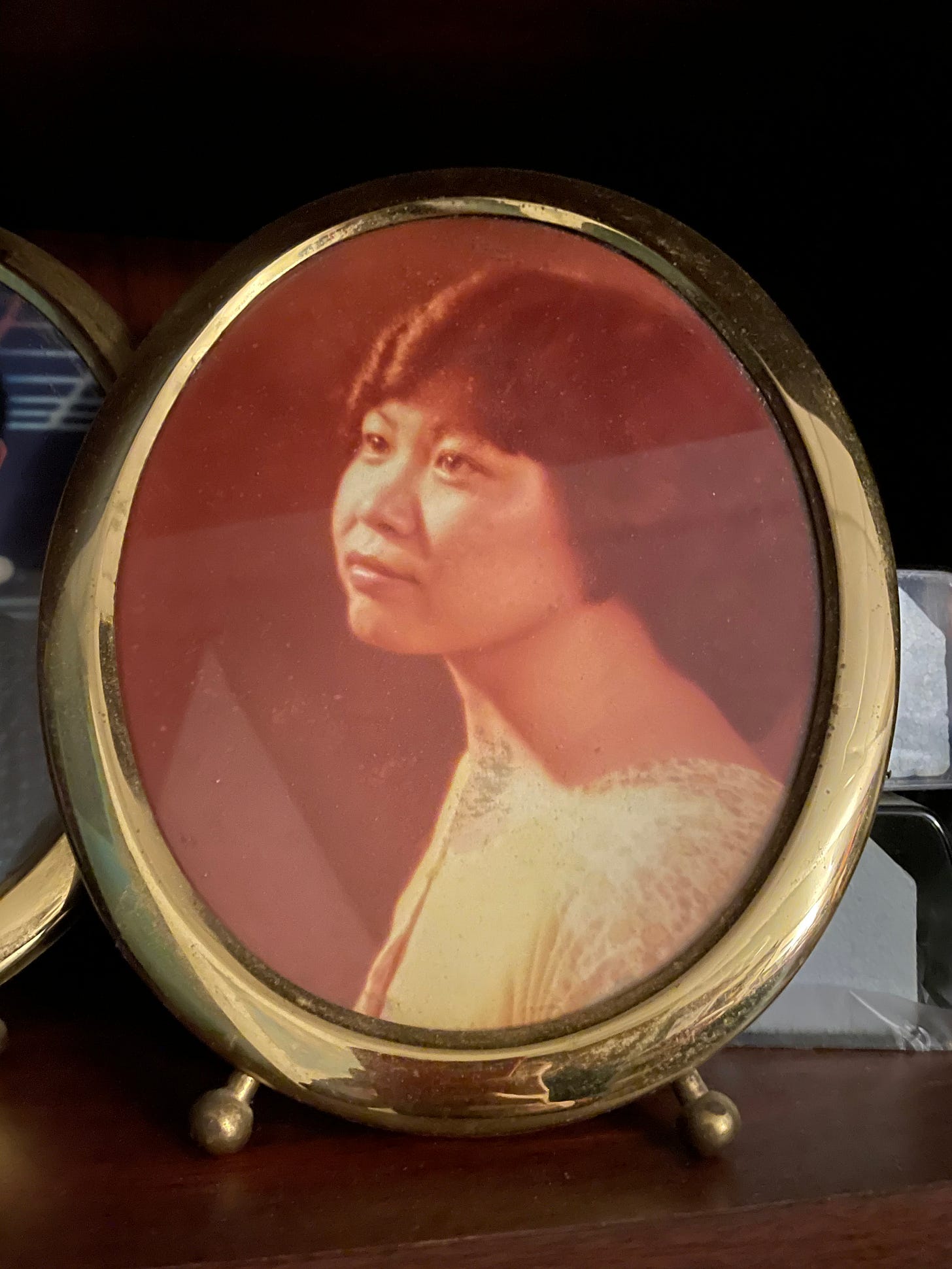This year marks the 70th anniversary of Ikiru. Akira Kurosawa’s 1952 drama about a man who, after receiving a death sentence in the form of a stomach-cancer diagnosis, eventually finds a way to make his heretofore wasted life meaningful, is considered by many to be one of the director’s greatest achievements. Plenty has been written about its cinematic strengths and philosophical depths over the decades. In the film’s spirit of introspection, allow me to find a fresh way to talk about one of my all-time favorite works of art by tying in my own life experiences.
Unlike the film’s protagonist, Kanji Watanabe (Takashi Shimura), I never received any sort of medical diagnosis that forced me to reconsider my priorities. When I first saw Ikiru in 2005, however, I did feel a threat that was more existential in nature. It was during my sophomore year at Rutgers University and, having recently been accepted into both the Rutgers Business School and the School of Communications, Information, and Library Studies, I was far along the path to a double-major in accounting and journalism. But only one of those two majors had any correspondence to my actual passion for arts & culture. Majoring in accounting was very much my mother’s “idea.” I put that word in quotes because what she occasionally insisted was just her “strong suggestion” — namely, that I major in accounting in order to ensure a level of financial stability and comfort — I thought was more of a decree.
At the time, I didn’t feel there was any other way for me to take her counsel. My mother is in many ways the prototypically strict and unyielding “tiger mom” (a phrase memorably coined by Amy Chua in her 2011 book Battle Hymn of the Tiger Mother). She was an omnipresent force throughout my childhood, particularly during my teenage years when, instead of building friendships with my East Brunswick, New Jersey peers the way many others did, I spent most of my non-school time doing homework and studying at her behest. Due to my upbringing as a Jehovah’s Witness, I felt a certain obligation to defer to her presumed wisdom. If she said accounting was the best path to a secure post-college future…well, considering how relatively adept I was at mathematics and how little interest I had in other high-paying fields like engineering and law, I found it difficult to argue with either her logic or her motivations.
And yet my own knee-jerk disdain for accounting never left me, even when my mother insisted that I should just “learn to love it,” as she herself “learned” while working for two decades at the United States Postal Service. The scorn only increased as I gritted my teeth through the prerequisite courses those first two years at Rutgers. It didn’t help that one of my freshman-year floor mates was an aspiring theater actor, and that I ended up hanging out quite a bit with him and his theater-minded friends. All of them had a similar answer when I asked about dealing with the instability of a performer’s life: They loved acting so much that they would figure out how to make it work. “Why can’t I be like that?” I wondered.
Seeing Ikiru for the first time while deep in that headspace was unnerving, like watching a horror film that hit a little too close to home. Here, in the personage of Kanji Watanabe — a man as sheltered as I was, and so ground down by his bureaucratic vocation that he sticks to his job simply to remind everyone that he still exists — was a vision of exactly what I feared my life would become if I stuck to my mother’s preordained professional path. My life as an accountant would dominate to the point that I would lose whatever passion I had for arts & culture and become the “mummy” that Watanabe is characterized as by his younger coworker Toyo (Miki Odagiri). No other film up to that moment in my movie-watching history had so precisely articulated my fears about my future path. Thus, seeing Watanabe eventually turn his death sentence into a personal triumph — by bursting the strictures of Japan’s governmental bureaucracy and getting a playground built through sheer persistence — was truly, profoundly inspiring.
My life then began, to some degree, to imitate Kurosawa’s art. One day in the spring of 2005, what started out as a routine meeting with my Livingston College dean became infinitely more dramatic as my anguish manifested itself in a nervous breakdown, my tears spilling uncontrollably as I pondered a potentially hopeless post-college future. That emotional display led the dean to bring me to an on-campus therapist, who I proceeded to see weekly for the rest of the semester and even a bit into the summer. Those therapy sessions proved to be as much of a turning point in my life as Kanji Watanabe’s cancer diagnosis was to his. At the end of the summer of 2005, I worked up the courage to drive down to the Rutgers Business School and ask a registrar to rescind my acceptance.
In the 17 years since that first viewing, I’ve achieved just enough success in arts & culture writing to justify my bold decision (give or take a still-ongoing global pandemic that forced me to make some, uh, major adjustments). So perhaps it’s natural that the film would play differently for me in 2022. But the way in which it played differently surprised me. This time, I no longer felt the same level of intense identification with Kanji Watanabe in the first two-thirds of the film. That is only to be expected, since I did end up giving my life some kind of meaning and purpose through my writing. Something else about the film, however, pierced me more than it ever had before: Watanabe’s relationship with his ungrateful son, Mitsuo (Nobuo Kaneko). It made me reflect on my relationship with my mother.
As I grow older, I’d like to think I've gotten better about letting things go, casting aside regrets, not dwelling on the past, looking forward rather than backward. But even though the combination of physical distance and my mother’s own general mellowing has improved our relationship to some degree, I still find myself keeping a distance, going days, even weeks without contacting her, becoming easily irritable when she broaches topics she deems important, and being just generally unable to forgive and forget those past heated arguments.
There’s one recurrent thread in our relationship that still inspires irritation. I was born and partially raised in the Kew Gardens Hills neighborhood of Queens, New York, and my parents still own our house there, which is currently being rented out. Every so often, my mother will throw out one of her persistent “strong suggestions,” specifically that I move back into the basement of the house.
One could see this suggestion the way I imagine my mother sees it — as yet another way she can provide for me, so that I can save money for my future. Or one could see it how I instinctively do — as yet another way she can continue to exert control over me. Such was the nature of the arguments that raged in me all throughout my senior year of high school and those first two years of college. My desire to break free from what I saw as my mom’s iron grip was tempered by an appreciation of her well-meaning impetuses.
This time around, the fraught relationship between Watanabe and Mitsuo in Ikiru revived a whole host of guilty feelings that I have yet to wholly confront. Like my mother, Kanji Watanabe is a parental figure who has devoted much of his life to providing for his son, staying at the same soul-deadening job in order to do so. But Mitsuo is either completely ignorant of his father’s sacrifice, or has come to take it all for granted, appearing more interested in his father’s money than in his well-being. In the end, Mitsuo only learns the reality of his father’s last few months of life after he passes away, and can then only wonder why he didn’t tell him about his cancer diagnosis when he was still alive. Is my relationship with my mother headed to a similar place where I end up regretful at not showing enough appreciation of all that she has offered me, for better or for worse, throughout her life?
Watanabe was able to find it in himself to make something positive out of a negative situation. So did I, back in 2005 when my entire adult life felt like it was hanging in the balance. Maybe it will happen again when it comes to my mother and I. For now, at least, Kurosawa’s masterpiece endures, still finding new ways to scare me and speak to me after all this time.







